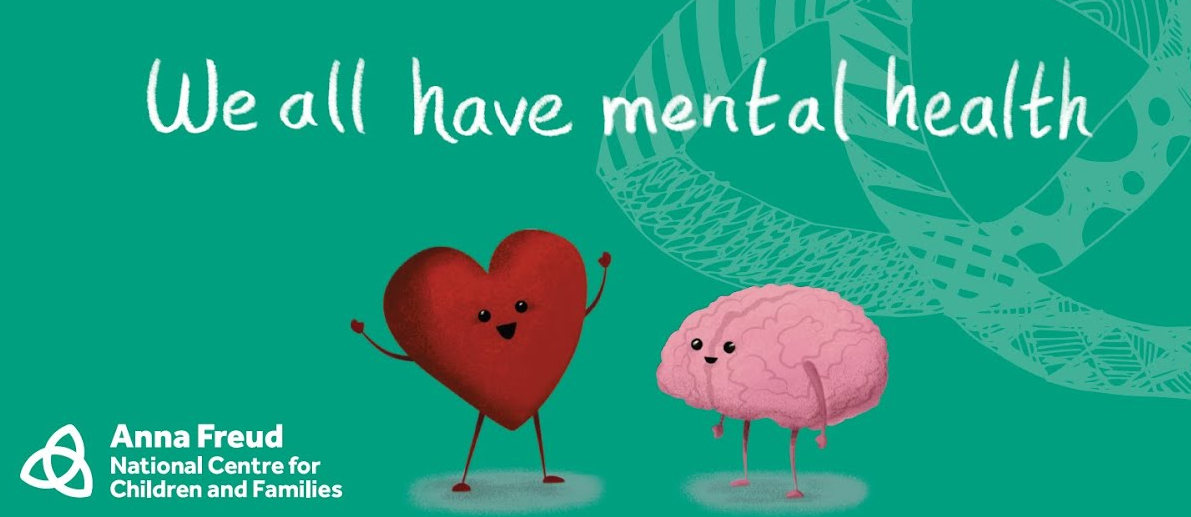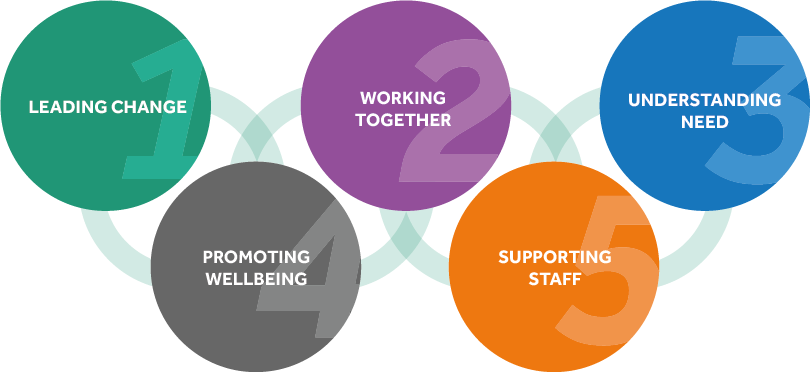01452 894272
Guidance for professionals in Gloucestershire working with young people with mental health or emotional wellbeing concerns
World Mental Health Day

The Anna Freud National Centre for Children and Families have produced this toolkit which provides a set of resources focusing on inclusivity and celebrating our differences - all with a mental health focus.
The resources provide specialised knowledge and support for diverse groups of children, and celebrate the unique and different qualities each child brings to your school community.
The toolkit is split into two sections:
- ‘The same but different’ resource set
This offers a set of resources all about celebrating diversity and difference. There’s an assembly plan, tips from teachers, and three lesson plans for different age groups. You can use these resources in the week leading up to World Mental Health Day, to help you create a mentally healthy culture in your school.
- Further resources to support diverse groups of children
Evidence shows that some groups of children may need more support with their mental health due to their past experiences. We have collected together resources to be delivered to, or inform your work with, groups of children who may need more support.
There are resources included for:
- Children who identify as LGBTQ+
- Children from ethnic minority groups
- Children who are refugees and asylum seekers
- Children who are looked-after
- Young carers
You can find lots more information and resources for other groups, and further factors that can effect children’s mental health, in the risks and protective factors section of Mentally Healthy Schools.
Down load the Primary toolkit https://mentallyhealthyschools.org.uk/media/2965/wmhd-toolkit-primary.pdf
Download the Secondary toolkit https://mentallyhealthyschools.org.uk/media/2966/wmhd-toolkit-secondaryfe.pdf
|
|
|
 Parent Support and TIC+ CHAT
Parent Support and TIC+ CHAT
The World Health Organisation
The World Health Organisation recognises World Mental Health Day on 10 October every year. This year's theme is 'mental health for all'. Below you will find our popular animations for primary and secondary schools alongside toolkits to support you to deliver a mental health and wellbeing assembly or lesson plan. As World Mental Health Day coincides with Black History Month, our Mentally Healthy Schools team have created a toolkit focusing on inclusivity and celebrating our differences - all with a mental health focus. To help schools and colleges create a whole school approach to mental health, we have also launched our free 5 Steps to Mental Health and Wellbeing framework which includes a range of free resources and case studies to help create a framework tailored to your setting and priorities. You'll also find the latest research on young people's experiences of completing outcome measures in schools, the potential for harm in talking therapy, and outcomes themes following psychotherapy alongside updates from CORC, the Youth Wellbeing Directory, and AFC Crisis Messenger service.
Learn to recognise, prevent and deal with your mental health problems.
Mental health problems often develop during the teenage period. As many as 1 out of 5 teenagers are dealing with these problems. Therefore, it is important that you know how to recognise common mental health problems, know how they arise, what you can do to prevent them and what you should do when you actually suffer from them. This course, designed specifically for young people, will help you find out more.
Tagged under: mental health day


